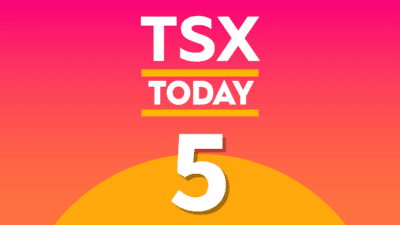Far too many investors are spending time absorbing as much information as they can from the talking heads on television to try to get a better gauge of where the markets are headed next.
A biological crisis or global pandemic is a black swan event that’s new to almost every investor on the Street.
So, rather than wasting your time trying to predict the short-term outcome of exogenous events and what impact that past pandemics have had on the markets, look to your portfolio and evaluate whether you were properly prepared. Did your portfolio crumble like a paper bag over the last three days of fear-driven selling? Or did you put yourself in a spot where you’re not tempted to hit the panic button?
As you’d imagine, so-called pundits on the Street currently have conflicting views. Some see the market correction as just the tip of the iceberg and a precursor to a market implosion. Others have an optimistic outlook, shrugging off recent concerns as “temporary” in nature.
While it’s tempting to buy into either popular opinion and attempt to “trade the coronavirus,” by doing so, you’d essentially be wasting your time (and your money) by betting on the outcome of a coin toss, as both scenarios, I believe, are equally plausible and both should be prepared for accordingly.
Is the dip buyable?
Even after an 8% drop in the S&P 500, there aren’t a tonne of bargains to be had, especially in the U.S., so don’t back up the truck just yet. The markets got frothy, they corrected, and we’re probably closer to a fairly valued market than anything.
On this side of the border, the TSX Index does seem to have better value propositions across the board, considering many Canadian stocks never had the same magnitude of froth to begin with!
Nevertheless, some TSX stocks took a beating, and it’s such stocks that I’d look to buy incrementally on the way down. When you’re dealing with a falling knife, dollar-cost averaging can be a helpful ally, even though you’ll be making your broker rich in the process.
Defence wins championships
The most attractive opportunities I see today are the overly beaten-up consumer staples like Empire Company and Alimentation Couche-Tard (TSX:ATD.B).
If a recession were to be on the horizon, a dirt-cheap consumer staple like Couche-Tard ought to be a staple in any portfolio that seeks to outperform in a bear market. The convenience store kingpin is in the business of saving consumers time, efforts, and, in some instances, money.
In a recession, it makes more sense to go down to the local supermarket to do a mega grocery haul to save money, but for many of today’s younger consumers, the cheapest option, when considering all opportunity costs at play, is to pay a buck or so more to get a mini-haul at the Circle K or Couche-Tard across the street.
Consumers have been tightening the belts, but they still need the bare necessities at the lowest opportunity cost, and more often than not, it’s Couche-Tard that has the best value proposition. Despite its defensive characteristics and outstanding growth profile, the stock has sold off violently, as the appetite for stocks, in general, has been curbed over the last few weeks.
Shares of Couche-Tard are down 7.3% from its all-time high reached just a few weeks ago. And although the company is well positioned to continue growing at a double-digit rate, the stock trades as though we’re already in the midst of a sustained economic downturn at 17.9 times trailing earnings.
Couche-Tard is a stock that was never truly expensive to begin with, and the recent weakness in the broader markets, I believe, has created a compelling way for investors to underpay for one of the best defensive growth stocks in Canada.
Stay hungry. Stay Foolish.







